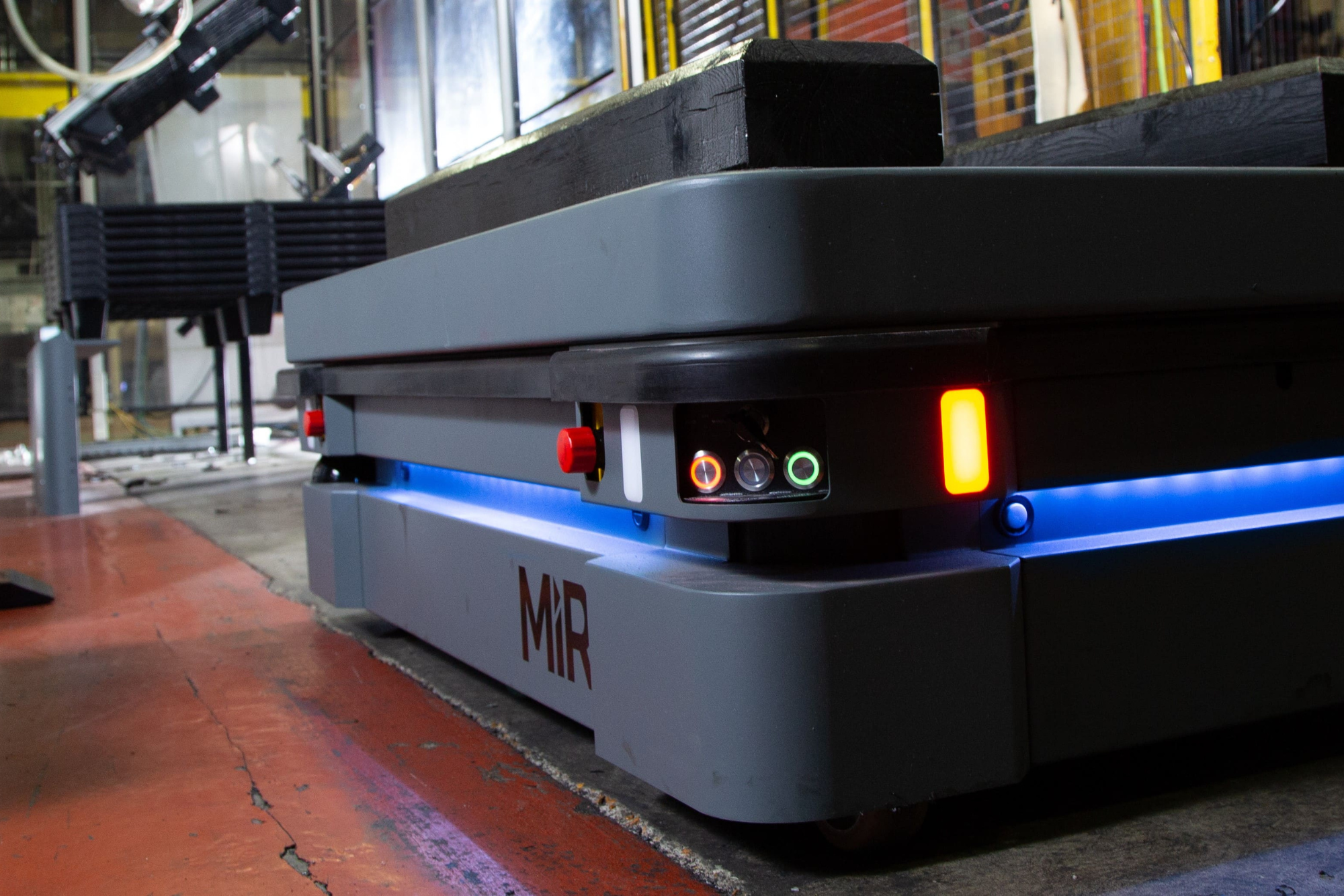
Industry 4.0 in Centre-Val de Loire is redefining the industrial landscape by integrating cutting-edge technologies such as the Internet of Things (IoT), artificial intelligence (AI), robotics, and additive manufacturing. This strategic evolution enhances the competitiveness of companies in the region, which is known for its expertise in key sectors such as aerospace, food processing, pharmaceuticals, and mechanics.
Industrial players, whether large corporations or SMEs, are modernizing their processes by focusing on automation, real-time data analysis, and resource optimization. These technological advancements enable them to improve productivity while reducing costs and ensuring greater flexibility in the face of market challenges.
CIM Atlantique supports you in this transformation by offering innovative solutions tailored to your sector.
Key Technologies for Industry 4.0 in Centre-Val de Loire
Industry 4.0 in Centre-Val de Loire is based on the integration of advanced technologies, each playing a key role in transforming industrial processes. Here’s an overview of the main technologies that define Industry 4.0.

Internet of Things (IoT)

Artificial Intelligence and Machine Learning
Artificial Intelligence and Machine Learning
Artificial intelligence (AI) and machine learning are at the heart of Industry 4.0, providing industrial companies with the ability to analyze large volumes of data in real time to optimize their processes. By reducing human errors and improving operational efficiency, these technologies enable automated decision-making and enhance the overall performance of production systems.
Machine learning, in particular, plays a key role in predictive maintenance: by analyzing machine history, it identifies early signs of failures, allowing for intervention before a problem arises and thus preventing costly downtime.

Advanced Robotics

Blockchain and Cybersecurity
Industry 4.0 in Centre-Val de Loire leverages advanced technologies, such as blockchain, to ensure the traceability and transparency of industrial processes. This provides a crucial advantage, especially in highly regulated sectors such as pharmaceuticals and food processing.
Cybersecurity is a major challenge in this transition, especially with the increase in connected machines, which amplifies the risk of cyberattacks. It is therefore essential to implement robust security protocols to protect sensitive data and maintain the stability of industrial systems.

Additive Manufacturing (3D Printing)
Industry 4.0 in Centre-Val de Loire embraces additive manufacturing, or 3D printing, a technology that enables the creation of three-dimensional objects from digital models. Used across various industrial sectors, it offers the advantage of producing custom parts, minimizing waste, and personalizing products based on specific customer needs. With its flexibility, this technology also helps reduce production lead times and optimize costs.
Applications of Industry 4.0 in Centre-Val de Loire Across Different Sectors
Industry 4.0 in Centre-Val de Loire has applications across numerous sectors, enabling a radical transformation of production and logistics.
Industry 4.0 in Centre-Val de Loire is redefining the food processing sector by providing innovative solutions to improve supply chain management and production lines, while enhancing product safety. IoT sensors enable real-time monitoring of processes, facilitating inventory management and production line oversight. The automation of processes, in addition to significantly reducing costs, ensures consistency and high quality throughout manufacturing, while also increasing responsiveness to market demands.
The pharmaceutical industry leverages automation to ensure that its manufacturing processes meet strict quality and safety standards. With Industry 4.0 in Centre-Val de Loire, drug traceability is enhanced, allowing for better control of contamination risks. Moreover, the integration of these technologies optimizes production, enabling a more efficient response to global demands in terms of volume and compliance.
The automotive sector is being profoundly transformed by Industry 4.0 in Pays de la Loire. Through the automation of production lines, vehicle manufacturing is accelerated while ensuring consistent and high quality. At the same time, technologies such as IoT and AI are deployed to enhance predictive maintenance of equipment and inventory management. The use of 3D printing also allows for the production of custom parts, thereby increasing the flexibility and efficiency of production.
Why adopt Industry 4.0?
Far from being just an evolution, Industry 4.0 in Centre-Val de Loire represents a profound transformation of the industry, driven by significant investment in innovation. Companies benefit from regional support to adopt advanced technologies, enabling them to remain competitive in a constantly evolving economic environment.
The terms “factory of the future” or “smart factory” are becoming increasingly common. They refer to the evolution of the traditional factory into a highly digitalized and autonomous model, an approach known as Factory 4.0. This concept represents the transition to an environment where technologies such as robotics, the Internet of Things (IoT), and artificial intelligence (AI) become essential tools for enhancing production efficiency.
This vision was developed by the Boston Consulting Group, which envisions a future where new technologies will redefine industrial production, making it faster, more flexible, and more efficient through the integration of automation and digitalization.
CIM ATLANTIQUE at your service
We support companies in their transition to Industry 4.0 in Centre-Val de Loire. Our solutions in robotics, industrial vision, and automation are designed to address the specific challenges of your sector.
Need tailored expertise? Contact us to optimize your industrial processes and accelerate your digital transformation.
Robotics, cobotics, and vision to optimize automation.
By combining IT, robotic automation and machine vision inspection, you can create several high-performanceautomation systems.
Industrial robotics
Industrial robotics now enables the automation of robots to perform all kinds of mechanical tasks. Each case is analyzed, then developed and integrated into its environment.
Industrial vision
Machine vision is the application of computer vision to the industrial fields of production, automation and research.
Cobotics
This approach to automation and technology aims to refine the action of traditional industrial robotics to achieve better cooperation between man and machine.
Speed of execution, network connectivity and quality inspection are the keys toautomation in the factory of the future.
FAQ
Industry 4.0 in Centre-Val de Loire
Do you have any questions?
We have the answers.















